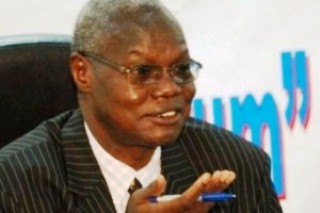EU envoy calls for independent judiciary in S. Sudan
March 7, 2012 (JUBA) – A European Union (EU) envoy has called for an independent judiciary in South Sudan, describing it as a “cornerstone” for the rule of law and respect for fundamental human rights in the new nation.

“South Sudan is at a critical juncture. It is now more important than ever to maintain our support to the development and capacity building in core government functions”, said the EU ambassador.
He pledged the EU’s continued support South Sudan’s judiciary, with specific focus on improving access to and delivery of justice, in light of the country’s current financial situation.
Justice Chan Reec Madut, South Sudan’s Chief Justice lauded the EU’s support, saying the project will assist in training judges and other judicial support staffs.
Acknowledging the numerous challenges the judiciary still faces, Madut said efforts are on course to address existing problems, citing a recent move by the judiciary to establish mobile courts in all areas that lack judges.
Also underway, the Chief Justice stressed, is the Judiciary’s commitment to the establishment of a judicial training institute in South Sudan, targeting both the new and existing judges in the country.
The project, which runs until 2014, came into effect because of strong ties between the International Development Law Organisation (IDLO), the EU and South Sudan’s judiciary.
Ted Hill, the IDLO Country Director, expressed optimism that the project, which has been designed based on the country’s own needs, will help the judiciary meet the challenges it faces, including the change from Arabic to the English language and the adoption of a common law model of justice.
Justice in South Sudan is also under threat from political influences, with the Governor of Lakes state banning human rights officials, lawyers and family members visiting young men arrested on suspicion of involvement in banditry and inter-clan violence.
NEPOTISM PRACTICES
South Sudan’s judiciary was recently in the spotlight after the appointment of the Chief Justice’s daughter, as one of the country’s 78 legal assistants, attracted lots of criticisms from the public.
In the eight years since South Sudan gained self-rule, the ministry of justice has not prosecuted a single official for corruption despite billions of dollars having gone missing from the state treasury. The revelation about Justice Madut’s daughter has reinforced the perception among many South Sudanese that the current regime is both corrupt and nepotistic.
(ST)
